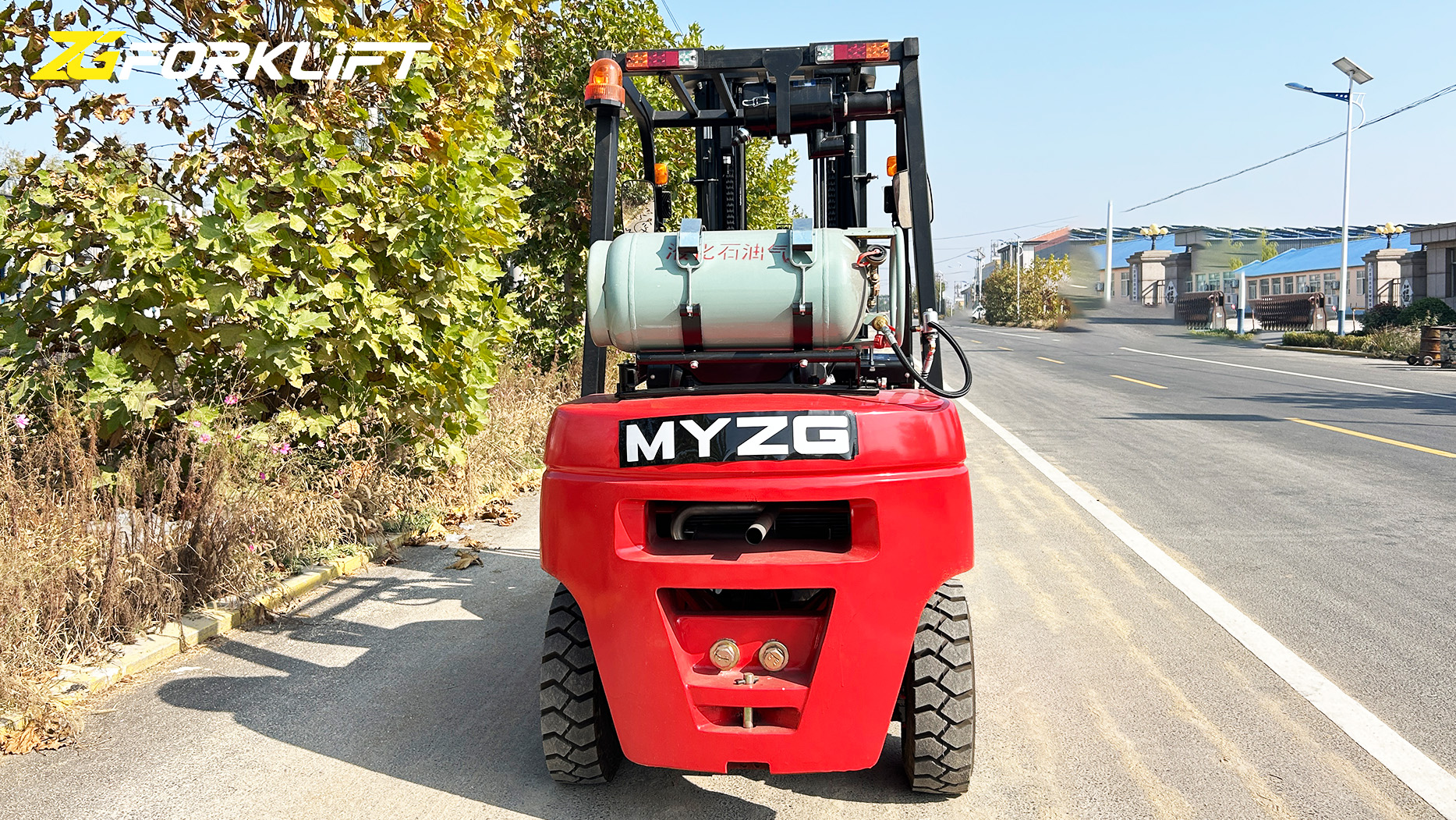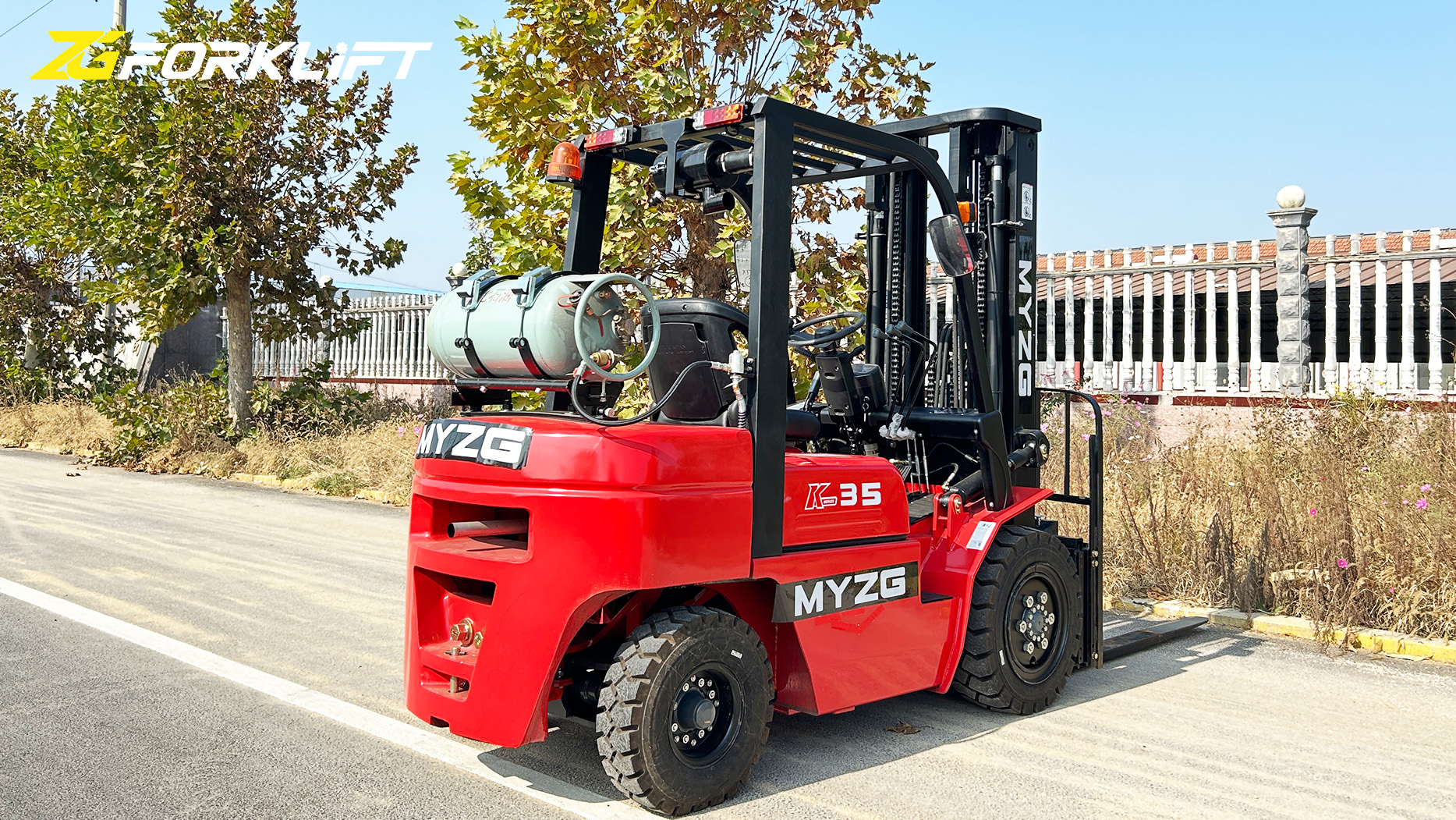A Comprehensive Analysis
Forklifts are indispensable in modern material handling, powering industries from warehousing and logistics to manufacturing and construction. While various fuel sources exist, propane has emerged as a dominant choice for many applications. This article delves into the multifaceted reasons why propane remains a preferred fuel for forklifts, examining its advantages in terms of performance, safety, environmental impact, and economic viability.
1. Performance and Power
High Energy Density: Propane boasts a high energy density, meaning it packs a significant amount of energy per unit volume. This translates to robust power output, enabling forklifts to handle heavy loads, navigate inclines, and maintain consistent performance throughout shifts, even under demanding conditions.
Clean Combustion: Propane burns cleanly with minimal soot and particulate matter emissions. This cleaner combustion results in:
Reduced engine wear and tear: Less particulate matter in the engine reduces wear and tear on critical components, extending engine life and lowering maintenance costs.
Improved fuel efficiency: Cleaner combustion leads to more efficient fuel utilization, maximizing the energy extracted from each gallon of propane.
Quick Starts and Reliable Operation: Propane engines are known for their quick and reliable starts, even in cold weather conditions. This ensures minimal downtime and consistent productivity throughout the year.
2. Safety and Handling
Reduced Fire Risk: While flammable, propane is a relatively safe fuel when handled and stored correctly. Modern propane tanks and fueling systems incorporate safety features like automatic shut-off valves and pressure relief mechanisms to minimize the risk of leaks and explosions.
Lower Emissions: Propane produces significantly lower emissions of harmful pollutants, such as carbon monoxide, nitrogen oxides, and particulate matter, compared to gasoline and diesel. This creates a safer working environment for operators and reduces environmental impact.
Easy Refueling: Propane refueling is typically quick and efficient. Refueling stations can be easily installed on-site, minimizing downtime and maximizing productivity.
3. Environmental Considerations
Reduced Greenhouse Gas Emissions: Propane has a lower carbon footprint compared to gasoline and diesel. While it still produces greenhouse gases, the emissions are significantly lower, making it a more environmentally friendly option.
Renewable Potential: Propane can be produced from renewable sources, such as agricultural waste, further reducing its environmental impact.
Compliance with Regulations: In many regions, stricter emission regulations are being implemented. Propane-powered forklifts often comply with these regulations more easily than gasoline or diesel models, reducing the risk of non-compliance and associated penalties.
4. Economic Advantages
Cost-Effectiveness: Propane is often more cost-effective than gasoline or diesel, especially when considering factors like fuel efficiency and reduced maintenance costs.
Predictable Fuel Costs: Propane prices tend to be more stable and predictable compared to gasoline and diesel, which can fluctuate significantly due to global market conditions. This allows businesses to better budget for fuel expenses.
Increased Productivity: The performance and reliability of propane-powered forklifts contribute to increased productivity and efficiency in material handling operations.
5. Versatility and Adaptability
Suitable for Various Applications: Propane forklifts are suitable for a wide range of applications, from indoor warehousing and manufacturing to outdoor construction and logistics.
Engine Durability: Propane engines are known for their durability and longevity, requiring less frequent maintenance and repairs compared to some other fuel types.
Technological Advancements: Ongoing advancements in propane engine technology are continually improving performance, efficiency, and emissions.
6. Comparison with Other Fuel Sources
Propane vs. Electric:
Advantages: Higher power and torque, longer run times, suitability for outdoor use.
Disadvantages: Higher initial investment, potential for refueling downtime.
Propane vs. Gasoline/Diesel:
Advantages: Cleaner emissions, lower operating costs, better fuel efficiency.
Disadvantages: Potential for higher initial investment, flammability concerns.
7. Future Trends
Advancements in Propane Technology: Continued research and development are focused on improving propane engine efficiency, reducing emissions further, and enhancing overall performance.
Integration with Renewable Energy: The increasing use of renewable energy sources, such as solar and wind power, to produce propane can further enhance its sustainability.
Growing Demand: As environmental regulations become stricter and the demand for cleaner energy solutions grows, the popularity of propane-powered forklifts is expected to continue to rise.
Conclusion
Propane has established itself as a preferred fuel for forklifts due to its compelling combination of performance, safety, environmental friendliness, and economic advantages. Its high energy density, clean combustion, and reliable operation make it an ideal choice for demanding material handling applications. While challenges such as initial investment and flammability concerns exist, advancements in technology and a growing focus on sustainability are poised to solidify propane's position as a leading fuel source for the future of forklift operations.
Post time:Dec.25.2024



